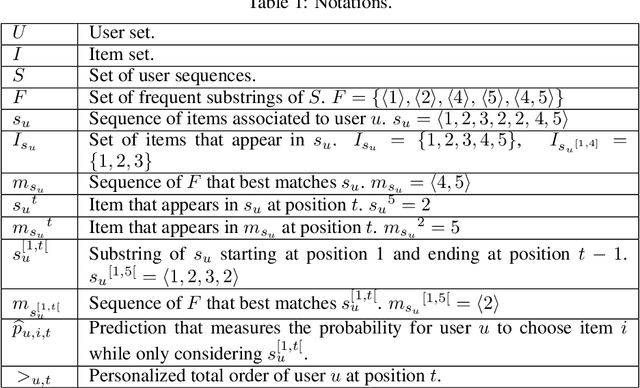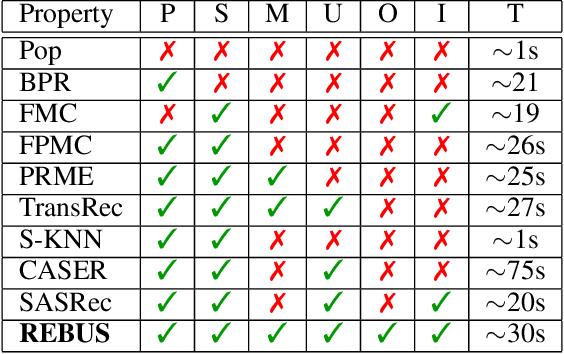Roch Auburtin
Sequential recommendation with metric models based on frequent sequences
Aug 12, 2020



Abstract:Modeling user preferences (long-term history) and user dynamics (short-term history) is of greatest importance to build efficient sequential recommender systems. The challenge lies in the successful combination of the whole user's history and his recent actions (sequential dynamics) to provide personalized recommendations. Existing methods capture the sequential dynamics of a user using fixed-order Markov chains (usually first order chains) regardless of the user, which limits both the impact of the past of the user on the recommendation and the ability to adapt its length to the user profile. In this article, we propose to use frequent sequences to identify the most relevant part of the user history for the recommendation. The most salient items are then used in a unified metric model that embeds items based on user preferences and sequential dynamics. Extensive experiments demonstrate that our method outperforms state-of-the-art, especially on sparse datasets. We show that considering sequences of varying lengths improves the recommendations and we also emphasize that these sequences provide explanations on the recommendation.
 Add to Chrome
Add to Chrome Add to Firefox
Add to Firefox Add to Edge
Add to Edge